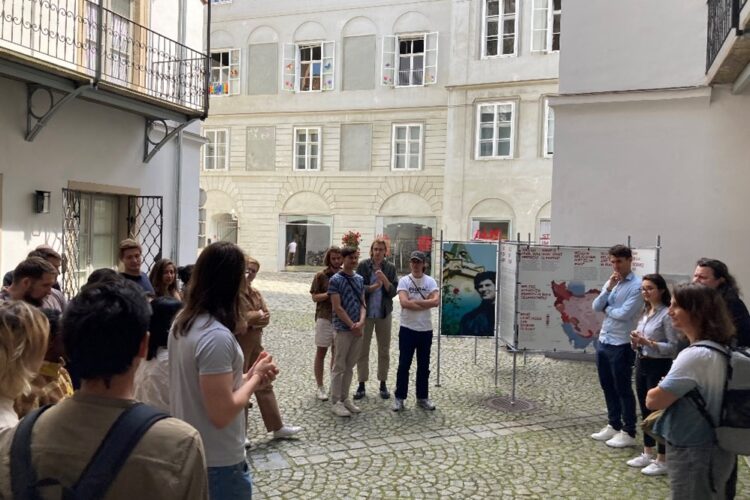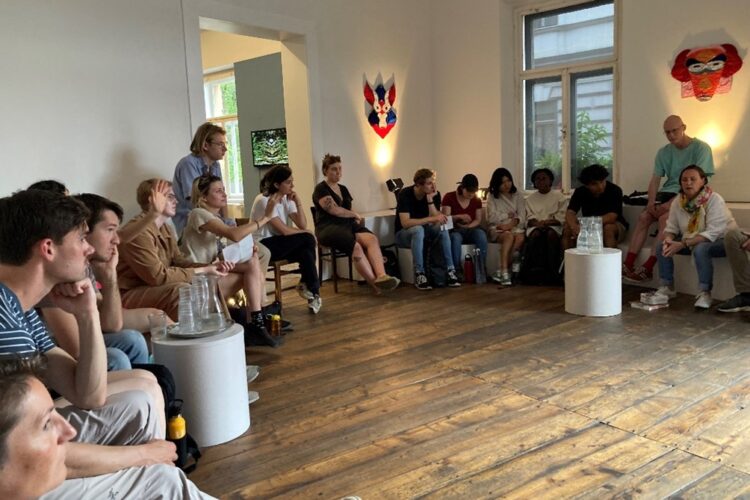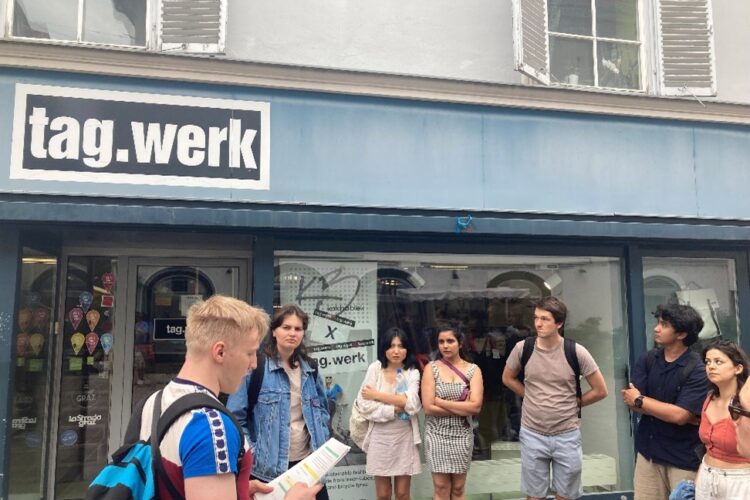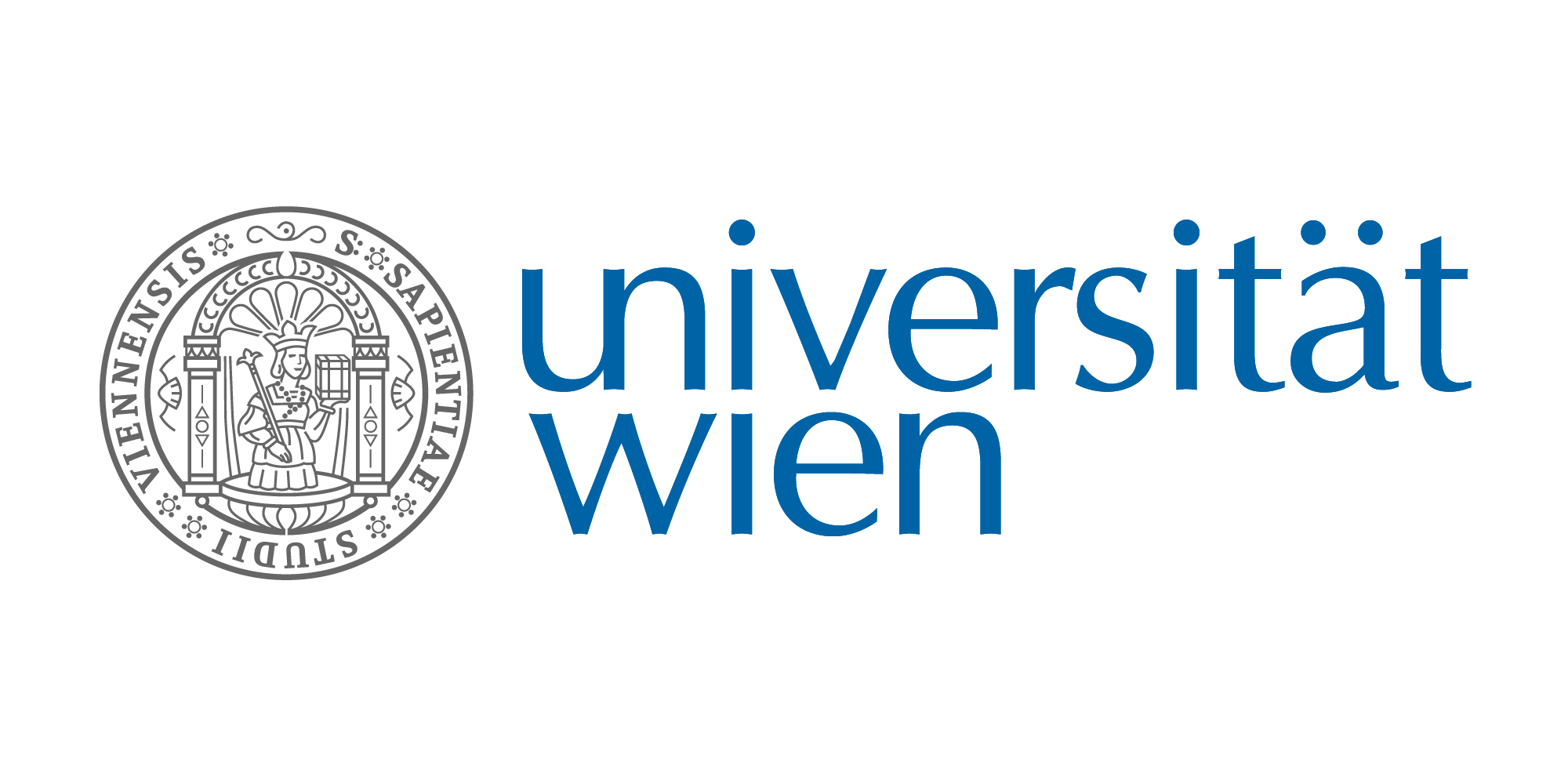4CITIES excursion to Graz: Unveiling the socio-spatial diversity of Austria’s second largest city
Graz, the charming Austrian city, represents not only rich history and architecture, impressive culture and educational institutions, but is also a highly interesting urban ground to explore socio-spatial diversity. The 4CITIES excursion – led by Yvonne Franz and supported by 4CITIES Alumni Ogül Büber (Graz Museum) and Rivka Saltiel (University of Graz) – focused on the exploration of these socio-spatial diverse areas, and provided an unique opportunity to explore Graz through the lenses of social inequalities.
Our journey started with a visit to the exhibition “Out of Iran: Studying in Graz from the 1950s to the 1970s” at Graz Museum, which provided us with deep insights into the experiences of student migrants from Iran – one of the largest student groups at that time – and into a previously under-researched aspect of Graz migrant history. As the history of a city forms its identities and images, the general exhibition provided details on the historical developments that present-day social and spatial structures in Graz.

Another central theme of our excursion was the current housing market situation and the impacts of gentrification. Graz has experienced a rapid increase in property prices and rental costs in recent years, leading to changes in neighborhoods, “patchwork gentrification” and increasing housing issues not only for students in Graz. We explored different parts of the city and spoke with local experts such as Rotor – Zentrum für zeitgenössische Kunst – to gain a comprehensive understanding of the effects of these developments on the city’s social structure.

Graz is also one of the European cities that is heavily affected by climate change and in need of rapid climate change adaptation measures. During our excursion, we went on a “climate change walk” guided by the Klimabündnis Österreich where we visited and discussed projects and initiatives aiming at ecological sustainability and climate change adaptation.

In conclusion, Graz stands for a highly interesting ground to study a unique migration-education nexus along with the challenges posed by climate change and developments in the housing market, making this middle-sized Austrian city a highly valuable research area in the field of urban studies and beyond.



Text and pictures: Fabian Windhager, student assistant Urban Studies Working Group, Department of Geography at University of Vienna (2023).




